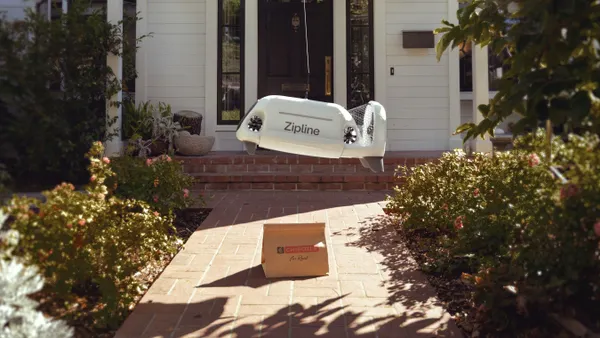Dive Brief:
- D.C. Attorney General Karl Racine brought a lawsuit against DoorDash Tuesday over its old tipping model and seeks to recover millions of dollars in tips from the delivery platform.
- The attorney general's office also wants to impose civil penalties against the company, calling the practice "deceptive."
- The suit comes less than a week after DoorDash shared that Dasher pay grew 12.5% on average during the first full month under its new pay model — which gives workers base pay of between $2 and $10 and the entirety of customer tips — in September.
Dive Insight:
In response to this suit, a DoorDash spokesperson told CNBC that "the assertions in the complaint are without merit and we look forward to responding to them through legal process," citing its work with an independent third-party to verify that it has paid 100% of tips to Dashers.
The charges from the D.C. attorney general follow a March investigation Racine launched, which found that DoorDash used customer tips to supplement worker pay. According to the charges, DoorDash operated this way from July 2017 until September 2019, during which time D.C. customers alone paid "millions of dollars in tips that were used to subsidize DoorDash's payments to Dashers."
DoorDash changed its tipping model after public backlash over its system in September, and the results from its first full month under the new system are encouraging for its employees and brand perception. Still, this suit shows that frustration and distrust of the model may still linger.
Competitors like Uber Eats, Grubhub and Postmates have already given contracted workers 100% of their tips, so DoorDash could be viewed as late to the game by both potential workers and socially conscious consumers. Still, the early success of the new pay structure could give the brand access to a wider labor pool and distract from Racine's charges. If the delivery platform continues to fight the accusation, however, would-be drivers could become distrustful.
The fact that DoorDash hired Beacon Economics, an independent third-party consultant, to evaluate the impact of its new pay model reflects transparency, which could help it avoid similar suits in the future.












